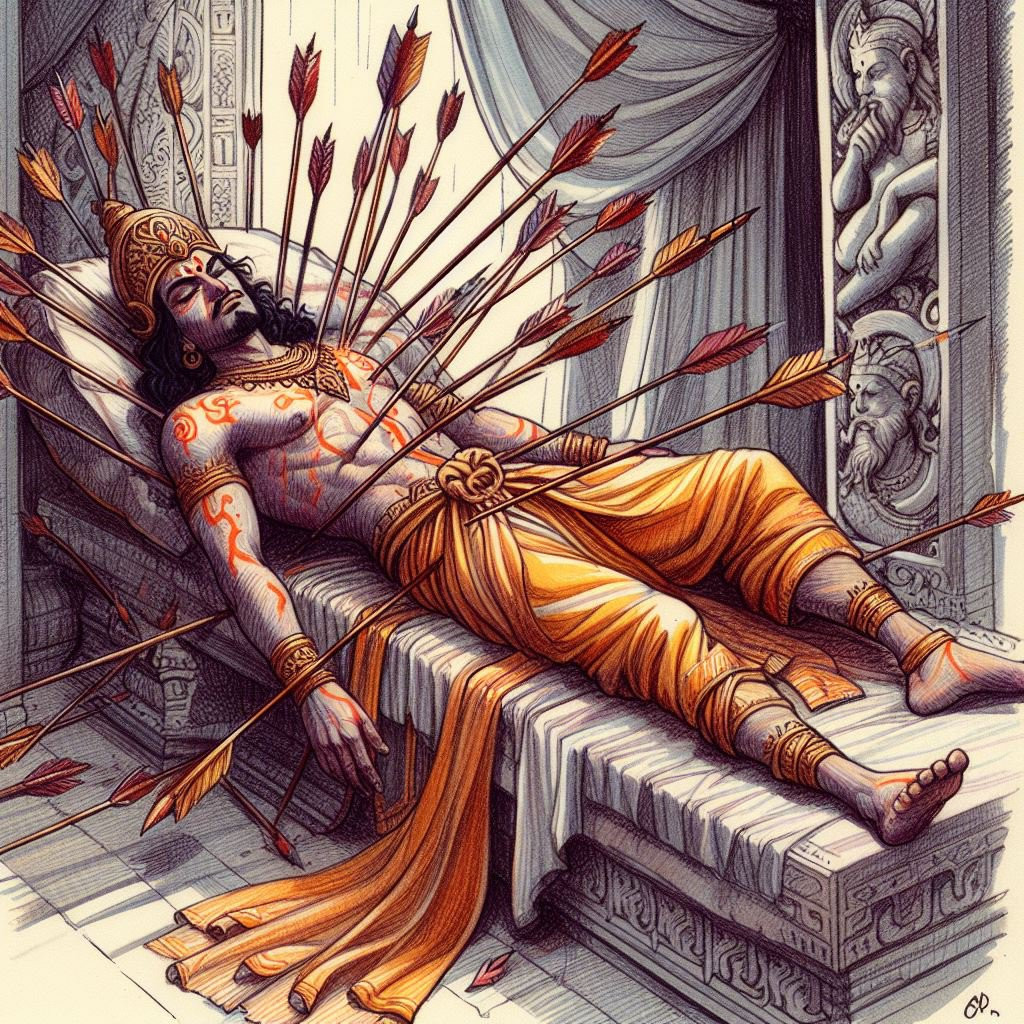Jaya Ekadashi, also known as Bhaumvati Ekadashi or Bhishma Ekadashi, holds great significance in Hindu culture. It is observed on the eleventh day (Ekadashi) of the Shukla Paksha (bright fortnight) in the month of Magha according to the Hindu lunar calendar. This auspicious day is dedicated to Lord Vishnu and is believed to bring immense blessings and spiritual merits to those who observe it with devotion.
The Significance of Jaya Ekadashi
According to ancient scriptures, observing Jaya Ekadashi helps in purifying one’s mind, body, and soul. It is believed that by fasting on this day, devotees can seek forgiveness for their past wrongdoings and embark on a path of righteousness. The fast is observed from sunrise on Ekadashi till sunrise on the following day (Dwadashi).
Celebration across India
Jaya Ekadashi is celebrated with great enthusiasm and devotion in different parts of India. Let’s take a look at how this auspicious day is observed in some regions:
North India
In North India, especially in Uttar Pradesh and Bihar, devotees wake up early before sunrise and take a ritual bath in holy rivers like Ganga or Yamuna. They then visit nearby Vishnu temples to offer prayers and seek blessings. Fasting plays a significant role during this festival, with many people abstaining from food throughout the day.

Maharashtra
In Maharashtra, Jaya Ekadashi is celebrated as “Bhishma Ekadashi” in honor of the great warrior Bhishma from the epic Mahabharata. It is believed that Bhishma, who had the power to choose the time of his death, chose to leave his mortal body on this auspicious day. Devotees visit temples dedicated to Lord Vishnu and offer prayers, flowers, and fruits.
South India
In South India, Jaya Ekadashi is celebrated with utmost devotion. Temples are beautifully decorated, and special rituals are performed throughout the day. Devotees engage in bhajans (devotional songs) and recite sacred texts like Vishnu Sahasranama (thousand names of Lord Vishnu). Some people also observe a strict fast without consuming even water.
Legends and Events Associated with Jaya Ekadashi
Jaya Ekadashi is associated with several ancient legends that highlight its significance:
The Legend of King Harishchandra
According to one legend, King Harishchandra was a righteous ruler known for his unwavering truthfulness. However, due to some unfortunate circumstances, he lost his kingdom, wealth, and family. Seeking redemption, he observed Jaya Ekadashi fasting and eventually regained everything he had lost.
The Pandavas’ Exile
During their exile in the forest as mentioned in the Mahabharata epic, the Pandava brothers observed Jaya Ekadashi fasting to seek divine protection and blessings. It is said that their devotion pleased Lord Vishnu, who protected them during their challenging times.

The Legend of Bhishma Ekadashi
The story behind Bhishma Ekadashi is associated with the epic Mahabharata. Bhishma, a prominent character in the Mahabharata, was known for his unwavering loyalty and commitment to righteousness. He was blessed with a boon that allowed him to choose the time of his death.
During the Kurukshetra war between the Pandavas and Kauravas, Lord Krishna noticed that Bhishma’s prowess on the battlefield was causing immense damage to both sides. To protect humanity from further destruction, Lord Krishna devised a plan to weaken Bhishma’s resolve and bring an end to his life.
On this auspicious day of Bhishma Ashtami, Lord Krishna visited Bhishma on his bed of arrows and engaged him in deep philosophical discussions about dharma (righteousness), duty, and spirituality. These profound conversations continued for several days until finally, on Bheeshma Dwadashi (twelfth day), realizing that his purpose had been fulfilled and that it was an auspicious time for him to depart from this world, Bhishma chose to embrace death.
Observance of Bhishma Ekadashi
Bhishma Ekadashi is observed with reverence and devotion by Hindus across India. Devotees wake up early before sunrise and take ritual baths in holy rivers or at home. They visit temples dedicated to Lord Vishnu or Bhishma and offer prayers, flowers, and fruits. Many people observe a strict fast on this day, abstaining from food and water.
Devotees also engage in reciting the Vishnu Sahasranama (thousand names of Lord Vishnu) and perform special rituals to honor Bhishma’s sacrifice. Some people also listen to discourses or read passages from the Mahabharata that describe Bhishma’s dedication to righteousness.
Significance of Bhishma Ekadashi
Bhishma Ekadashi holds great significance as it symbolizes the triumph of righteousness over evil. It serves as a reminder of Bhishma’s unwavering commitment to dharma and his ultimate sacrifice for the greater good.
Observing this auspicious day is believed to bestow blessings, spiritual merits, and protection from negative influences. Devotees seek inspiration from Bhishma’s life to uphold moral values, righteousness, and integrity in their own lives.
Conclusion
Jaya Ekadashi holds immense spiritual significance for Hindus across India. It is a day dedicated to seeking forgiveness for past mistakes and embarking on a path of righteousness. By observing this fast with devotion and offering prayers to Lord Vishnu, devotees believe they can attain liberation from sins and receive divine blessings. The celebration of Jaya Ekadashi varies in different parts of India, but the underlying theme remains the same – seeking spiritual growth and connecting with the divine.
Bhishma Ekadashi, also known as Bhishma Ashtami or Bheeshma Dwadashi, is a significant observance in Hindu culture. It is celebrated on the eighth day (Ashtami) of the Shukla Paksha (bright fortnight) in the month of Magha according to the Hindu lunar calendar. This day commemorates the great warrior Bhishma’s sacrifice and his departure from this mortal world. Bhishma Ekadashi is a sacred observance that honors the selfless sacrifice of the great warrior Bhishma. This day reminds us of the importance of adhering to righteous principles in our lives. By observing this day with devotion and offering prayers to Lord Vishnu or Bhishma, devotees seek divine blessings and strive to embody the virtues exemplified by Bhishma in their own lives.